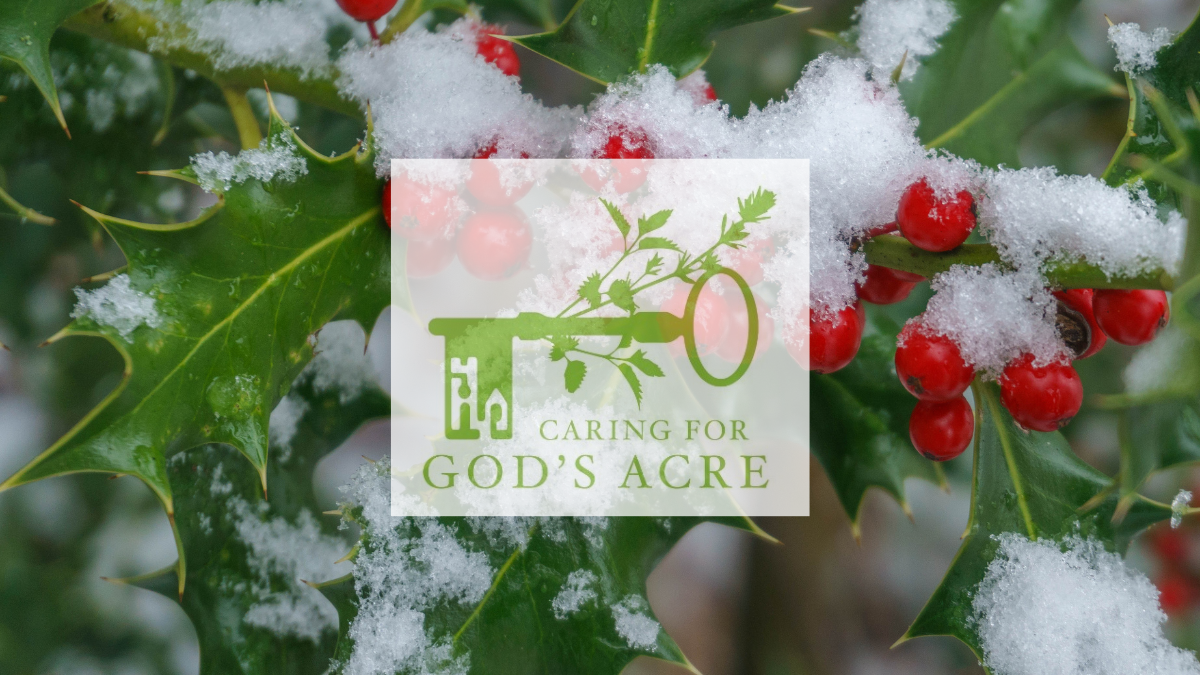
Holly
We tend to ignore holly trees until December, when they brighten up our churchyards, as well as our churches and homes at Christmas time, with their shiny leaves and bright berries. For the rest of the year they are less conspicuous, with dark green leaves, dark brown bark and small white flowers in the spring. Holly is an interesting tree however. Before botanists brought tree seeds from other countries to our shores, winter foliage was unusual, and all evergreen trees were viewed as special. Use of holly and yew branches for winter decoration is an old custom, probably a mix of a wish to make the place look festive, coupled with superstition. Holly was believed to be a fertility symbol and a charm against witches, goblins and the devil. It was thought unlucky to cut down a holly tree.
Holly has good natural defences with the leaves of a young holly extremely prickly. As the tree matures, the prickles reduce, particularly on higher branches, out of reach of most browsing animals. Holly trees are dioecious meaning that there are male and female trees with the decorative berries only found on the female of course. Holly berries are a vital food source for birds and small mammals such as wood mice and dormice. In some cases, mistle thrushes will vigorously defend a particularly choice holly tree from other birds so have a look in your local burial ground and see if you see a flurry of activity.
If you would like to start digitally recording wildlife in your local burial ground then why not use a churchyard holly tree to get going. Take a look on our website under Be Involved or click here: caringforgodsacre.org.uk/add-your-records to find out what to do. You will need to download the iNaturalist app onto a mobile phone, tablet or laptop. It's helpful to start recording with a familiar species and something that is easy to photograph. Maybe you have children or grandchildren in need of outdoor activities in the Christmas holidays? This could be a way to start exploring the wonderful wildlife to be found in churchyards, chapel yards and cemeteries.
All the best,
Diocesan Churchyard Environmental Advisor
www.caringforgodsacre.org.uk - individuals and groups in the diocese receive 20% members discount on all CfGA materials. Use the discount code diomem22
